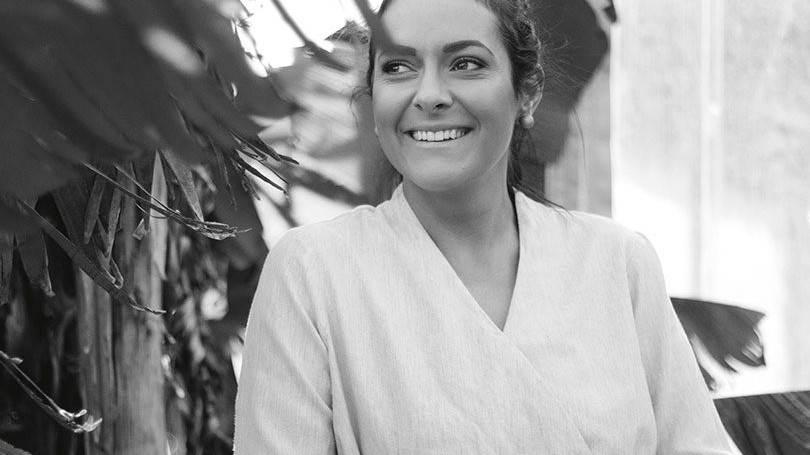With the fresh start of spring in the air, Joelene Ranby of Resolution Retreats has advice on how to begin and maintain healthy habits.
Tucked away on the borders of Lake Karapiro, Resolution Retreats boasts the world-class facilities many of us often expect we have to travel abroad to experience: sumptuous private chalet accommodation, daily morning yoga, peaceful bush walks, nutritionist-planned meals and a mountain-view wellness centre complete with an indoor heated swimming pool and salt- water jacuzzis. Then there’s the luxury in-house spa’s extensive ‘unwind’ menu offering everything from hot-stone massages, facials and reflexology to detoxifying lymphatic treatments.
The purpose-built health resort provides the ultimate setting for guests to truly unwind, but more importantly our range of daily health and nutrition workshops, cooking classes, fitness sessions and one-on-one consultations with expert practitioners ensures guests leave with the knowledge, motivation and resources needed to confidently lead healthier lives back home. It was founded on the very basis of what I needed when I navigated my own health challenges more than a decade ago, but realised didn’t exist here in New Zealand. Along with leading industry experts, I have designed the 3-, 7-, 10-, 14- and 21-day live-in retreat programmes with a pragmatic focus on habits.
With a ‘progress not perfection’ mantra the focus is on encouraging new healthy habits, then maintaining them once you get back home. With starting any new habit, we are trying to build reinforcement through time and repetition. My best advice is to start with one small, realistic change at a time and repeat, repeat, repeat to build motivation and momentum towards your goal.
Decide on a ‘trigger’ for your new habit. It can be a great idea to try pairing up the new habit with an already existing, established habit or activity, and do them both at same time.
Find ways to make carrying out the new habit easy and convenient – getting organised really helps. Foster accountability through telling friends, family or work colleagues about your new habit, or use an app or a smart watch.
Don’t beat yourself up when you don’t get it perfect – you’re not perfect, and don’t need to be – just keep working at it.
So what if you have tried to establish healthy habits but frustratingly haven’t been able to make them ‘stick’ long term? If you are anything like me, being ‘healthy’ (and whatever that means to you) doesn’t come naturally; you have to work at it. A little like dusting or weeding, for most of us, health is a work in progress and will never be ‘done’. Once you get it to a state you’re happy with, it still takes work to ensure it stays that way.
At Resolution Retreats, we encourage our guests to think differently about their expectations and even the language they use with regards to their health. ‘Falling off the wagon’ is a phrase that is frequently thrown around by people who are disappointed they have slipped back into old bad habits despite a resolution or an investment in newer good ones. However, the psychology behind habits says that it’s unlikely that you will be able to change a habit without slipping up every now and again.
The true power of a habit comes when neural pathways have been built in your brain that are strong enough that the action becomes automatic; when effort or willpower is no longer required in carrying out that action. Some say it takes 21 days to establish a habit, some texts suggest it’s more like 66 days. However, if you’re changing an existing habit, and undoing long-established neural pathways, it can take a lot longer.
My best piece of advice for those of us wanting to understand why we ‘fall off the wagon’ is that while you’re working on changing your habits, remember that you’re not a robot, you’re a human, so perfectly imperfect. If you’re like me and were brought up in a family where health wasn’t a priority, there are a lot of unhealthy habits to unlearn. I personally ‘fall off the wagon’ at least once a year, and I’m not afraid to admit it. You may not hear many people in the wellness industry making an admission like that (nor will you find us posting video evidence of us emptying a packet of scorched almonds into our faces on the way home from work), but believe me, it happens.
I’m a firm believer that the difference between someone who is making progress with their health, and someone who has gone way off track, is often a little bit of self-compassion. At Resolution Retreats we call this avoiding ‘the stuff-it effect’. The person making progress is not perfect they make stuff ups, too. But when they do, they practice a bit of self-compassion; they realise that changing habits takes work, they’re not a complete failure and re-invest in getting back on that wagon. Others, however, may suffer the ‘stuff-it effect’ and give up.
Remember, don’t beat yourself up when you don’t get it perfect, just keep working at it and remember our Resolution Retreat mantra ‘progress not perfection’. ■ resolutionretreats.co.nz




